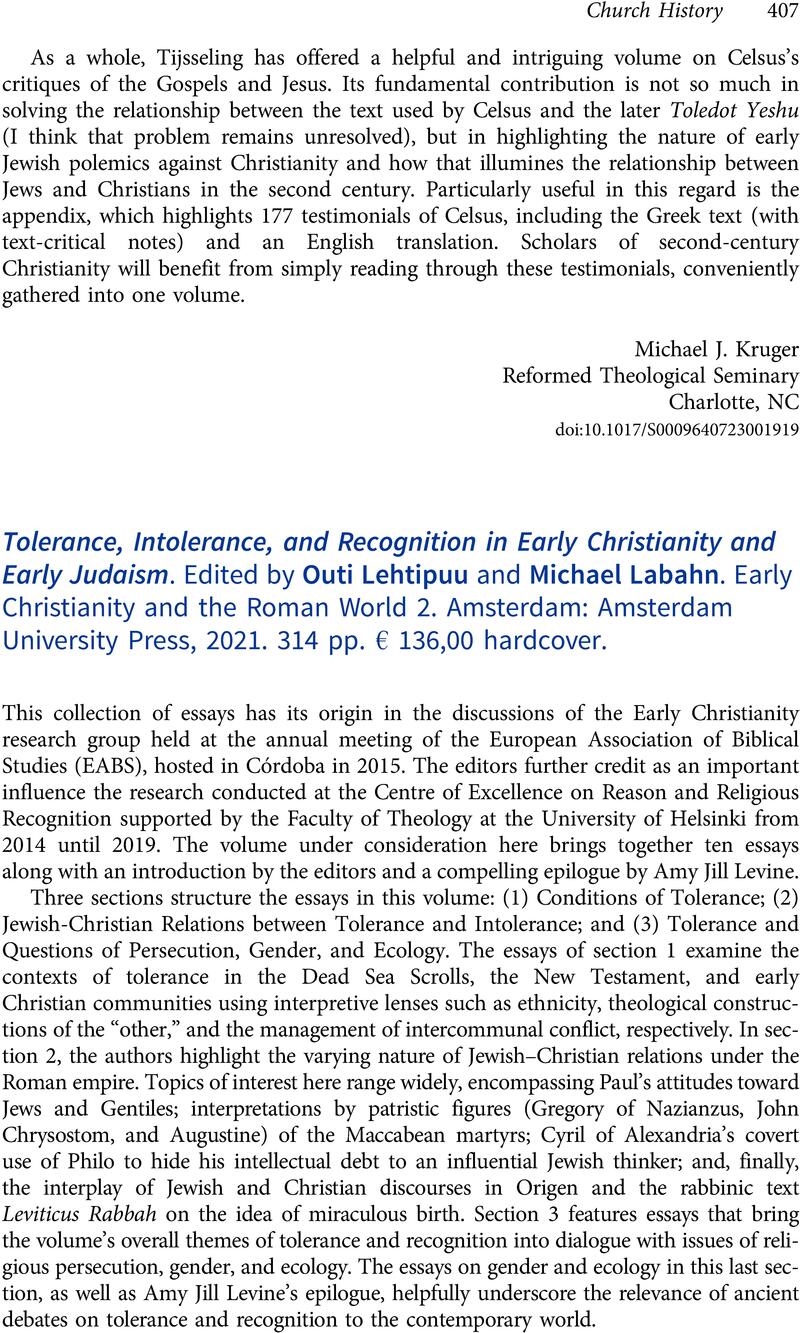No CrossRef data available.
Article contents
Tolerance, Intolerance, and Recognition in Early Christianity and Early Judaism. Edited by Outi Lehtipuu and Michael Labahn. Early Christianity and the Roman World 2. Amsterdam: Amsterdam University Press, 2021. 314 pp. € 136,00 hardcover.
Review products
Published online by Cambridge University Press: 02 October 2023
Abstract

- Type
- Book Reviews and Notes
- Information
- Copyright
- Copyright © The Author(s), 2023. Published by Cambridge University Press on behalf of American Society of Church History


